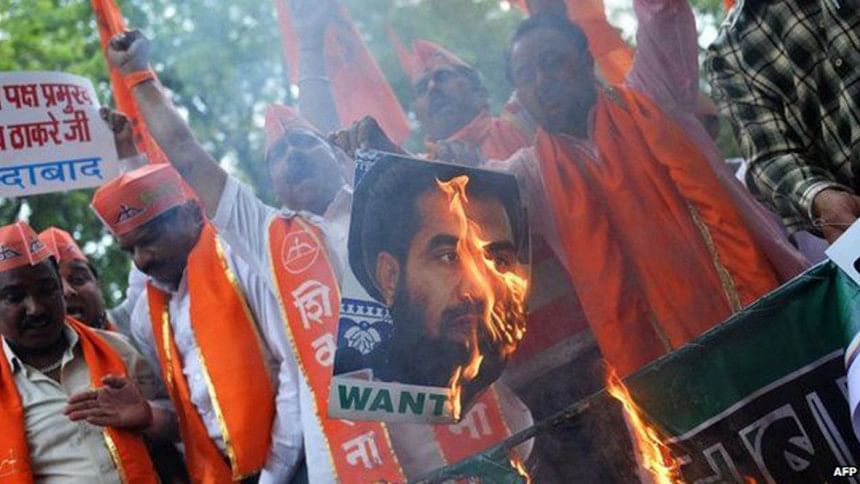India protest at Mumbai attack 'mastermind' bail move

India has formally protested to Pakistan over its decision to release on bail the suspected mastermind of the 2008 Mumbai terror attacks.
India's ambassador in Islamabad met Pakistan's foreign secretary to "register our strong concerns" at the release of Zakiur Rehman Lakhvi, a government official in Delhi said.
The US and France also voiced concern.
Pakistan hit back, blaming India for what it called "inordinate delay in extending co-operation" over the case.
Zakiur Rehman Lakhvi was released from jail in Rawalpindi on Friday morning.
He had been granted bail in December, but was kept in detention under public order legislation.
That detention was declared void by the High Court, which ordered his release.
Lakhvi still faces trial - along with six other suspects - over the attacks, which left 166 people dead and damaged peace efforts between the two countries.
'ABOMINABLE ACT'
Indian Home Minister Rajnath Singh had earlier called the release "very disappointing and unfortunate".
The ministry for external affairs said it had warned Pakistan that such a move "erodes the value of assurances repeatedly conveyed to us with regard to cross-border terrorism".
The US state department said it too had conveyed its concerns to senior Pakistani officials "over the course of many months and as recently as yesterday".
"Terrorist attacks are an insult on the collective safety and security of all countries," spokesman Jeff Rathke said.
Indian Prime Minister Narendra Modi has not publicly commented on the development, but on a visit to Paris on Friday it was mentioned by French President Francois Hollande.
"I express to you my indignation each time that a terrorist is freed while he still has responsibility for an abominable act," President Hollande told Modi.
In November 2008, a number of gunmen carried out a series of coordinated attacks targeting at least seven high-profile locations across Mumbai, including two luxury hotels.
The attacks were blamed on militants of the Lashkar-e-Taiba group (LeT) which Lakhvi was accused of heading.
He was arrested by Pakistan on 7 December 2008, four days after he was named by Indian officials as one of the major suspects.
During his time in prison, Lakhvi is said to have received special treatment which enabled him to remain in effective contact with the LeT rank and file.
Elements in the Pakistani establishment are known to have provided such facilities to jailed militant commanders whom they believe they may need in future.
The court order to free Lakhvi on bail caused controversy as it came just after militants carried out a massacre at a school in Peshawar last December.
The attack prompted the civilian and military leadership to come together to make a rare call for action against "all shades of terrorism".

 For all latest news, follow The Daily Star's Google News channel.
For all latest news, follow The Daily Star's Google News channel. 



Comments